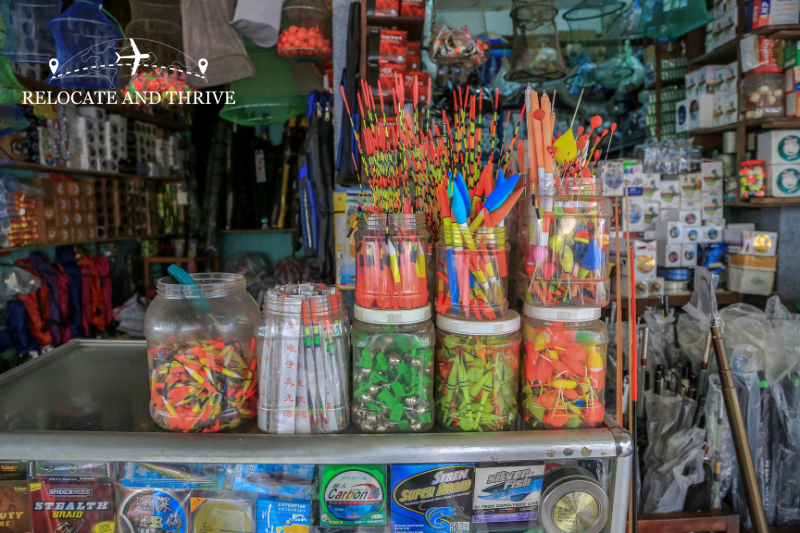Funny Culture Shock Moments That Made Me Laugh Later — Philippines
Cold Open: The Facepalm That Started It All
My first week in Manila, a lola reached for my hand and I thought she wanted a high-five. I smacked the air with peak enthusiasm while she gently guided my knuckles to her forehead. That was my introduction to mano po, a gesture of respect for elders, and the exact moment I realized my cultural download bar was at 2%. She laughed, I laughed, then I kept replaying it in my head, smiling into the wind. That became the theme of my early months in the Philippines: tiny misfires, generous smiles, and the kind of warmth that turns oops-moments into running jokes.
Mini‑Stories: The Mix‑Ups
The Greeting Glitch
I’m a hugger. The Philippines has its own rhythm: a quick smile, a soft “hi po”, maybe a friendly side kiss with close friends, or just an eyebrow flash of hello. On day two, I lunged for a hug and my new acquaintance bowed slightly. We did the awkward dance, half hug, half bow, two chuckles, and a rescue line: “New here, still buffering.” By week three I’d collected an entire greeting toolkit: “Ate” for older women, “Kuya” for men, “po/opo” for respect. Hugs came later, once the vibe said it was welcome.
Shoes‑Off Surprise
Some homes are strictly shoes-off, others wave you in. I was so proud of my confident boots that I wore them straight over a spotless tiled floor. The collective gasp was gentle but unmistakable. I backpedaled like a cartoon and lined my shoes beside a neat row of slippers. The sweetest part? My host handed me house flip-flops and said, “Next time, you already belong.”
Menu Mayhem
I asked for spaghetti and expected the savory kind from home. The first bite was sweet, and completely unexpected. Later I met halo‑halo with beans and corn and balut that tested my courage. The funny part was realizing the joke was on my assumptions. Now I order with curiosity and a backup napkin.
Line Logic, Sari‑Sari Edition
At the sari‑sari store, the line isn’t always a straight line. It’s more of a neighborhood constellation. People appear, greet the owner, grab a sachet of shampoo, hand over coins, and vanish. I once tried to enforce a “proper queue” and earned a chorus of amused “Sige lang”. Lesson learned: read the room, follow the flow, and trust Ate behind the counter to know exactly who’s next.
Bathroom Buttons & The Tabo
I stared at the bidet like it might pop a quiz. Then I noticed the tabo (dipper) and realized I had entered Advanced Bathroom Culture. A mis-aimed spritz taught me about water pressure the fast way. These days I could write a friendly user manual. Page one: keep the floor dry and your sense of humor closer.
“CR” vs “Restroom”
I kept asking for the restroom and got blank stares until someone said, “Ah, CR!” Short for Comfort Room. I added that term to my survival kit, right next to “pasalubong” (treats from a trip) and “kain tayo” (let’s eat) which, by the way, is less an invitation and more a philosophy.
Karaoke on a Tuesday
At midnight I heard a power ballad soar across the street. I thought there was a festival. It was Tuesday. Two hours later, a neighbor hit a note so high the dogs weighed in. I learned three things: videoke is a love language, everyone knows the chorus to “Bakit Ngayon Ka Lang,” and earplugs are an expat’s best friend.
Why These Moments Happen
Our brains run on home settings. We carry invisible manuals for greetings, lines, food, and noise levels. Drop that manual into a new culture and it throws helpful errors: “Undefined function: lip‑pointing,” “Null reference: po/opo,” “Array out of bounds: rice for breakfast.” What looks like awkwardness is really a software update. The Philippines is extra generous about this , people correct with kindness, and laughter arrives fast. Once I stopped clinging to my manual, I started collecting new pages: offer respect with po/opo, read social cues with eyebrows and smiles, bring small pasalubong when visiting, and accept second helpings with joy.
How I Learned To Laugh Sooner
I started naming moments out loud: “Oops, cultural download in progress.” That tiny sentence invited help. I borrowed local phrases early, even when clumsy. I asked, “How do I say this politely?” and people gladly coached me. I treated each mix‑up like a postcard: short, colorful, and worth sharing later. Most of all, I assumed good intent, my own and everyone else’s — and it turned near‑cringe into shared comedy.
The On‑the‑Spot Save Lines
“Sorry po, newbie pa ako.”
“Teach me the right way?”
“First time ko dito, paano po usually?”
“Thank you, noted na!”
“Game! I’ll try.”
“Sa susunod, mas maayos na ako.”
The Gentle Field Guide
Greetings
Use Ate or Kuya when addressing service staff or drivers — this is how Filipinos show respect to locals. Add po or opo when speaking to elders, as a sign of politeness. And remember, a warm smile goes a long way!
Space
Crowds can be cozy. On transit, offer seats to seniors, pregnant folks, or anyone holding a kid.
Food
Expect rice at breakfast, merienda between meals, and dessert that might include cheese or corn. If someone says “kain tayo,” it’s kind to at least nibble.
Queues
In malls and government offices, lines are lines. In corner shops, lines are relationships. Watch first.
Cashless quirk
Cards and e‑wallets are common, but small bills still win the day for trikes, markets, and tips.
Language
Taglish is normal. Learn magic words: “po/opo,” “pakisuyo,” “pasensya,” “salamat,” and the ever-helpful eyebrow raise.
Turning Awkward Into Belonging
The moment I stopped performing perfection, people relaxed with me. I laughed with, not at. I brought snacks to share, asked genuine questions, and let friends tease me when I said “open the light.” Humor turned acquaintances into barkada. The punchline was never the culture, it was my assumptions doing cartwheels.
Souvenir Lessons
Curiosity first, confidence second.
Pick up po/opo, Ate/Kuya, CR, and kain tayo on day one.
Carry coins for jeepneys and sari‑sari stores.
Say yes to halo‑halo, try kamayan (eating with hands) once, and keep tissues handy.
Let Tuesday karaoke be Tuesday karaoke.
When in doubt, smile, eyebrow hello, and ask for help. People will meet you halfway.
I still shake my head at those early slip‑ups, but the memory always ends with a grin. The Philippines has a way of turning mistakes into stories and strangers into coaches. If you’re new here, welcome. You’ll be laughing about your own episodes soon, probably by your third jeepney ride and your second plate of pancit.


